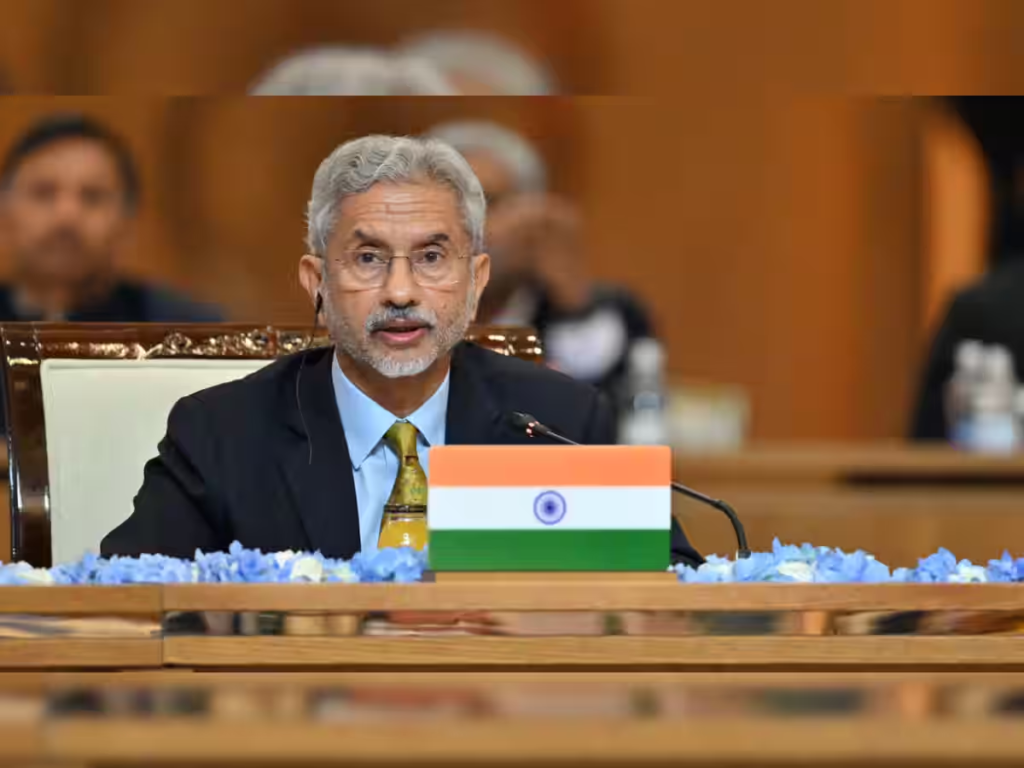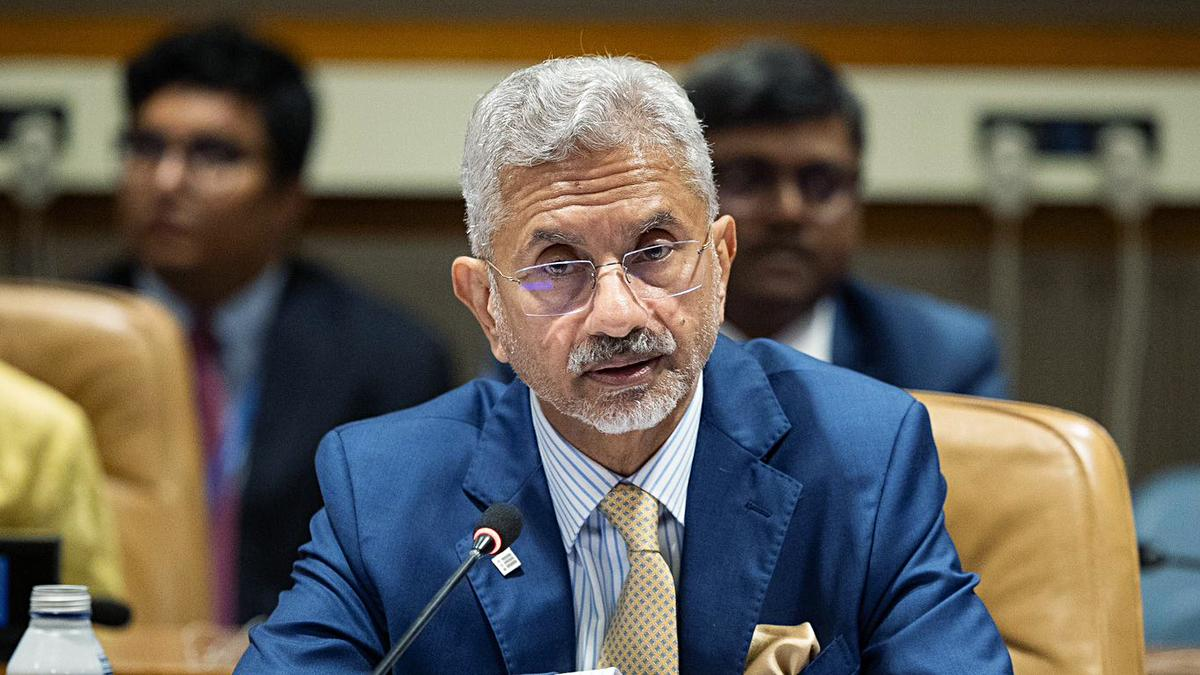India’s External Affairs Minister Jaishankar’s Pakistan visit for the Shanghai Cooperation Organisation (SCO) summit has stirred mixed reactions in China. This visit, the first by an Indian foreign minister to Pakistan in nine years, holds significant weight in regional geopolitics.
While it aims to strengthen ties within the SCO, China’s response has been laced with suspicion and discontent. The increasing tensions between India and China, especially within the SCO framework, have intensified discussions around this visit, as both nations jostle for influence in the region.
India’s Role in the SCO: A Delicate Balancing Act
The Shanghai Cooperation Organisation (SCO) has long been a platform where China and Russia hold considerable sway, with India and Pakistan joining the group in 2017.
For India, participation in the SCO is crucial to maintaining its strategic presence in Central Asia and balancing regional relations, particularly with its neighbors China and Pakistan.
However, Chinese commentators have noted that India seems increasingly uncomfortable with China’s dominant role within the organisation.
Several Chinese analysts have suggested that India has subtly reduced its participation in SCO activities, possibly as a form of dissent. They argue that India’s ambivalence toward the SCO stems from its unease with China’s growing influence in global affairs.
While India projects itself as a major global power, its role within the SCO appears limited compared to China and Russia. This power imbalance is becoming more pronounced as China strengthens its foothold in the region through economic projects like the Belt and Road Initiative (BRI) and its close ties with Pakistan.
Read : A Couple Walked Great Wall of China From Opposite Ends, Met in the Middle, and Then Broke Up
India’s reduced engagement, according to some Chinese media outlets, is seen as a reflection of its discomfort. India’s geopolitical stance often aligns more closely with Western powers, particularly the United States, rather than with the China-Russia axis that dominates the SCO.
Read : NATO Accuses China of Aiding Russia’s War on Ukraine
Some commentators argue that New Delhi’s strategy within the SCO is to avoid giving full support to initiatives led by Beijing, contributing to a subtle but ongoing tension within the organisation.
At the same time, India’s participation in the SCO remains important for diplomatic balance. The fact that Jaishankar attended the summit in Islamabad, despite the strained relations between India and Pakistan, reflects New Delhi’s continued interest in engaging with the region.

However, Chinese commentators have framed this visit as a reluctant move, perhaps an attempt by India to not completely sideline itself from important discussions happening within the SCO.
This delicate balancing act between cooperation and dissent illustrates the complex dynamics between India, China, and the broader SCO member states.
Rising Tensions: Terrorism and India-China Relations
Jaishankar’s visit to Pakistan coincides with growing concerns over terrorism in the region, a topic of significant relevance for both India and China. Recent attacks targeting Chinese citizens in Pakistan have underscored the precarious security situation, with terrorism becoming a shared concern.
In one such incident, a convoy of Chinese staff from the Port Qasim Electric Power Company was attacked near Karachi, resulting in the deaths of two individuals. The Chinese government condemned the attack, calling it a terrorist act.
China’s heightened concerns about terrorism in Pakistan have created a delicate situation, especially in the context of China’s close relationship with Pakistan. Chinese-language media outlets have pointed fingers at India, accusing it of being behind some of the destabilising activities in Pakistan.
Some commentators have gone as far as to suggest that India has links to the Baloch Liberation Army (BLA), a separatist group active in Pakistan’s Balochistan province.
These analysts claim that India has been covertly funding and supporting the BLA to undermine the China-Pakistan Economic Corridor (CPEC), a major infrastructure project that is central to China’s Belt and Road Initiative.

The timing of Jaishankar’s visit has further fuelled suspicions among some Chinese commentators. They argue that India’s presence in Pakistan during the SCO summit may be part of a broader strategy to project a more favorable image while simultaneously deflecting attention from its alleged links to the BLA.
Although there is no concrete evidence to support these claims, the narrative has gained traction in Chinese media, adding to the already strained relations between India and China.
The broader context of terrorism in Pakistan and its impact on China-Pakistan relations is a growing concern for Beijing. The Chinese government has long viewed Pakistan as an “ironclad” ally, and any perceived threats to this relationship are taken seriously.
The allegations against India, whether valid or not, have created a cloud of suspicion over Jaishankar’s visit, further complicating the already tense dynamics between the two countries.
India, on the other hand, has repeatedly denied any involvement in terrorist activities in Pakistan. New Delhi has expressed its own concerns about cross-border terrorism originating from Pakistan, particularly in the context of the long-standing conflict over Kashmir.
The interplay between these accusations and counter-accusations only serves to heighten the mistrust between India and China, both of whom are vying for greater influence in South Asia.
China-Pakistan Relations: Strengthening Alliances Amid Growing Tensions
As Jaishankar’s visit unfolded, Chinese media emphasized the strong bond between China and Pakistan. The term “ironclad friendship” frequently appeared in online discussions, highlighting the deep strategic and economic ties between the two countries.
The China-Pakistan relationship, solidified through projects like the CPEC, remains a cornerstone of Beijing’s regional strategy. However, the strengthening of this alliance has become a growing concern for India, particularly as the two nations continue to cooperate on intelligence sharing and security measures in the face of external threats.
Chinese analysts have called for enhanced cooperation with Pakistan to address security challenges, particularly in the aftermath of terrorist attacks targeting Chinese citizens. The narrative that India and the United States are working together to disrupt China-Pakistan relations is prevalent in Chinese media.
Some commentators have argued that the US is using India as a pawn in its broader strategy to counter China’s rise. By fostering closer ties with India, Washington seeks to influence regional dynamics, particularly in South Asia and the Indo-Pacific region.
This view is particularly relevant in the context of Pakistan’s potential membership in BRICS, a group of emerging economies that includes Brazil, Russia, India, China, and South Africa.

If Pakistan were to join BRICS, its close ties with China could further strengthen Beijing’s influence within the group, a development that India would likely find troubling. India has traditionally sought to maintain its leadership role within BRICS, but the inclusion of Pakistan could shift the balance of power in China’s favor.
For China, the deepening of its alliance with Pakistan is seen as a necessary counterbalance to India’s growing alignment with the West.
Chinese commentators have suggested that India’s participation in the SCO and other multilateral forums is primarily driven by a desire to counter China’s influence, rather than to engage constructively with regional issues.
This perception of India as a disruptive force, particularly in the context of China-Pakistan relations, has only heightened tensions between the two countries.
Jaishankar’s visit to Pakistan for the SCO summit has highlighted the complex and often contentious dynamics between India, China, and Pakistan. While the visit is seen as an important diplomatic step for India, it has not been well-received in China.
Chinese commentators have raised concerns about India’s role within the SCO, its alleged involvement in terrorism in Pakistan, and its broader geopolitical strategy in the region.
These suspicions reflect the deep mistrust that continues to characterize India-China relations, particularly as both nations compete for influence in South Asia.
The strengthening of China-Pakistan relations, framed as an “ironclad” alliance, further complicates this geopolitical landscape. As India seeks to balance its relations with both the West and its regional neighbors, the future of its engagement with the SCO and other multilateral forums remains uncertain.
Jaishankar’s visit, while significant, underscores the challenges that lie ahead for India as it navigates the complex web of regional geopolitics.

